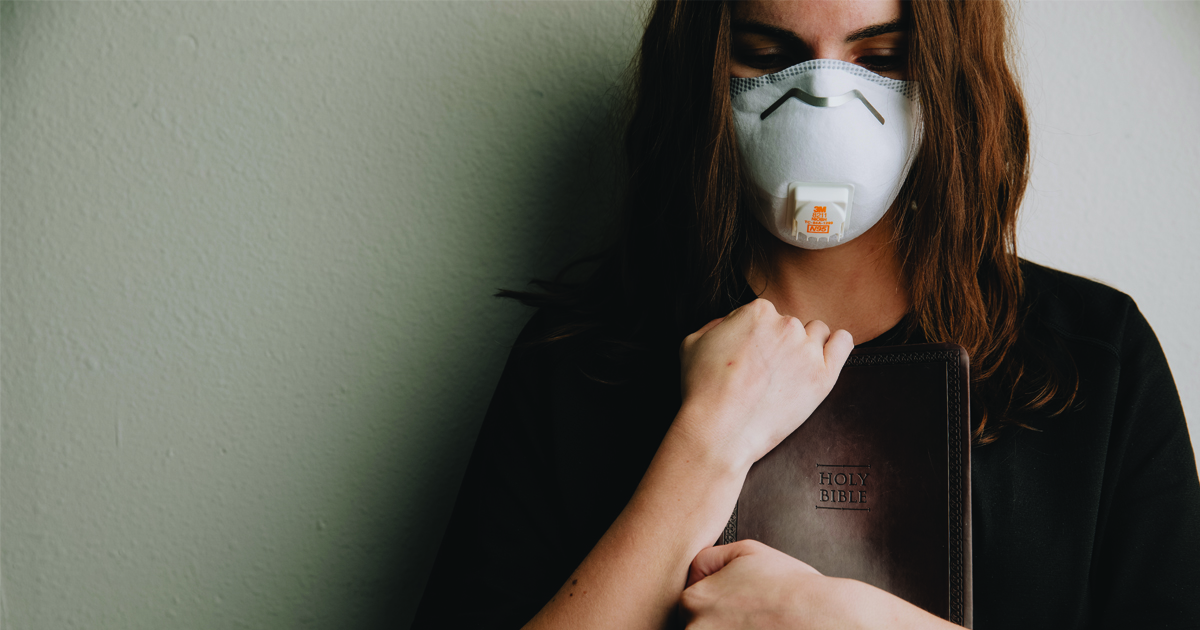I can’t imagine a single person on this planet who was not shaken by 2020. Most of us remember the day when everything changed with the flip of switch. I recall flying home from a conference in February 2020, only beginning to hear and listen with interest about COVID-19 and its impact in Wuhan, China. There was somewhat of a buzz in the air as I travelled through the airport, but honestly—I felt unaffected; the tragedy felt far off.
With all the arrogance that any millennial could muster, I thought, It’s too bad that’s happening over there … but there’s no way it will ever be an issue here. I kid you not; these thoughts filled my mind as images of people donning facemasks and hazmat-like suits flooded every news channel and numbers scrolled across the screen, indicating catastrophic loss during what would quickly become a full-fledged pandemic, with chaos and disease indiscriminately touching every part of our world.
The pandemic wrecked us. For some, it’s still wrecking you.
And now here we are, nearly two years (just typing that makes me sick to my stomach) into what many consider the most disruptive and disappointing time of their lives. School stopped, prom was cancelled, graduations and other celebrations were postponed, “hanging out” bore newfound risk, people—family members—died, friends became faces we saw on Zoom, but never in person, DoorDash delivered instant comfort, Netflix-binging became the new drug, church doors closed and division within the church body surfaced over what was right, wrong, safe or stupid. And for many, their identity as a son or daughter made in God’s very image became blemished with doubt, anger and mistrust for the One who was alleged to be all-seeing, all-knowing, ever-present and all-powerful, yet seemed to be silently standing by.
Thanks for nothing.
Let me set the record straight. The pandemic wrecked us. For some, it’s still wrecking you.
I remember the day my kids (we have four) came home from school and never went back for 18 months. Overnight, we became at-home educators, stressed-out parents, emergency disaster responders, racial reconcilers and pastors who had no clue what was coming. With neither home nor work offering much in the way of reprieve, I found myself quickly overwhelmed, running on adrenaline, obsessively checking the news for the latest COVID developments and genuinely concerned about my emotional and spiritual well-being. We all thought: When is this going to end?
In the constant asking of that question, God met me. Maybe he met you, too. With honesty and urgency, I began seeking Jesus on our back patio each morning, a place that was quiet and offered some semblance of peace before my day began. I spent weeks in the Book of Psalms, poring over each chapter, carefully underlining these ancient words, my heart resonating with the repeated cries of David: How long, Lord? I scribbled prayers in my journal for my marriage, my kids, our ministry, all of which were suffering—asking God to give us wisdom to lead and love well during a time when everyone was grieving and so many were disagreeing. Some days felt like hell. Other days I experienced the provision of God in ways I hadn’t even asked for, let alone imagined (see Ephesians 3:20). His steadfast love for me prevailed through incredibly dark days and nights.
God did something in the middle of circumstances I would never have willingly chosen for myself. In the face of loss, change and anxiety, of being stretched out as a parent, pastor and wife—God did something. He made me grateful.
And I’m not talking a superficial type of gratitude—not gratitude conditional upon a gift that meets my criteria as good. Instead, God gave me gratitude deeply rooted in the reality that his character, his provision, his love, his kindness, his care, his knowing me, did not change simply because life got hard. See how it became about him, not me? God’s posture toward humanity is always that of generosity: breathing his life into us (see Genesis 2:7), showing his kindness and steadfastness (see Colossians 1:17). He was holding me together.
How could I be mad about that?
Let me suggest that, perhaps, gratitude is best cultivated when we take whatever time necessary to sit with our grief, embrace suffering and resist numbing out in the face of hardship. It’s these very things (grief, suffering, hardship) that become the means to cultivating an intimate and more honest connection with God, even in the middle of our deepest pain and greatest times of wondering: How long, Lord? This is the stuff of life that develops gratitude rooted in the commitment to trust God even when we can’t see him.
“The Lord is my strength and my shield; in him my heart trusts, and I am helped; my heart exults, and with my song I give thanks to him” (Psalm 28:7 ESV).
Lieutenant Erin Wikle is a Salvation Army officer who lives in San Francisco.
Reprinted from Peer magazine.
Photo: Brad Coleman/Lightstock.com










What an incredible summing up of these (almost) last two years...and what an inspirational glimpse of how gratitude can be renewed and alive through anything. Thank you.